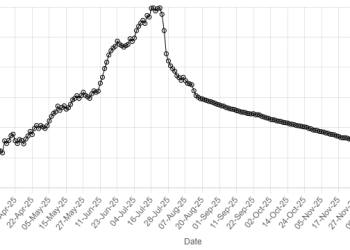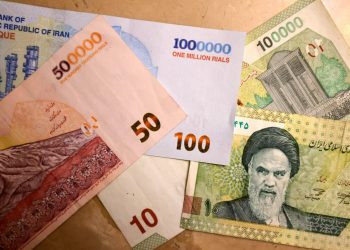While reflecting on the global outlook for 2023-24, Kristalina Georgieva, the Managing Director of the International Monetary Fund (IMF), said that while growth remains weak this year, it might finally be a critical ‘turning point’ for the world economy.
“We are finally seeing growth going up and inflation going down after a long period where everything was the exact opposite – growth was down, and inflation was up,” the IMF chief said Sunday at the pre-World Government Summit event in Dubai.
Georgieva said: “After expanding by 3.4 per cent last year, we see growth slowing to 2.9 per cent in 2023 and rebounding slightly to 3.1 per cent in 2024. We released our latest forecast two weeks ago, and while it is less gloomy than in October, we still project slower growth, and the fight against inflation remains a priority for 2023. So even in 2024, we will not be returning to growth of the kind the world needs.”
“What has shaped this less pessimistic outlook are three factors. One is the remarkable resilience of labour markets in the US and Europe, resulting in strong consumer demand. Second, China re-opening on December 8 last year, drastically improving recovery projections. Third, adjustment of Europe as it withdraws from dependency on Russian oil and gas.”
She added: “On the positive, we see inflation declining from 8.8 per cent in 2022 to 6.6 per cent this year and 4.3 per cent in 2024 — although for most countries, it will still be above pre-pandemic levels.”
The IMF chief and other global banking and finance leaders, including those from Islamic finance, spoke at the seventh annual Arab Fiscal Forum at the World Government Summit.
Scheduled to begin on Monday, the WGS will see participation from an exhaustive list of global leaders and celebrities. The IMF chief encouraged the leaders to draw inspiration from the Moroccan football team’s spectacular use of determination and team work at the Qatar World Cup in 2022.
Mena to see a drop in growth
During her keynote speech, Georgieva spoke about the vital role resilient public finances can play in protecting people and economies. She also praised Gulf countries for extending their support towards low-income nations in the region during crises.
However, as the global economy slows, growth is also expected to drop in the Middle East and North Africa (Mena) — from 5.4 per cent in 2022 to 3.2 per cent this year before ticking up to 3.5 per cent in 2024, said the IMF chief.
“The OPEC+ production cuts would reduce overall revenue for the oil exporters. For oil importers, the challenges would continue. Public debt is a particular concern, with several economies in the region facing elevated debt-to-GDP ratios — some close to 90 per cent,” added Georgieva.
Finding opportunities
However, Georgieva listed three ways to mitigate these risks, despite more significant macroeconomic concerns. She said: “There are three guiding principles countries can use to build resilient fiscal policies. One is to have a robust framework to conduct fiscal policy and manage risks; two is long-term planning and investment to address climate change; and three is to boost tax revenues.”
Georgieva said many countries in the region had made good progress in expanding their tax capacity. She said, “The UAE is set to phase in corporate tax, and Bahrain and Saudi Arabia have raised substantial revenue by introducing value-added taxes. Actions like these should raise revenue by increasing compliance.”
Deepening international cooperation
For some countries, domestic policies are not enough to resolve another pressing challenge: unsustainable debt, said Georgieva. “Crushing debt burdens weigh on health, education, and infrastructure spending. This hits the vulnerable hardest, but it is also a shared problem for the region and the world,” she explained.
“And this is where teamwork comes in. With so many public and private creditors, unsustainable debt can only be addressed through multilateral cooperation,” Georgieva concluded.









